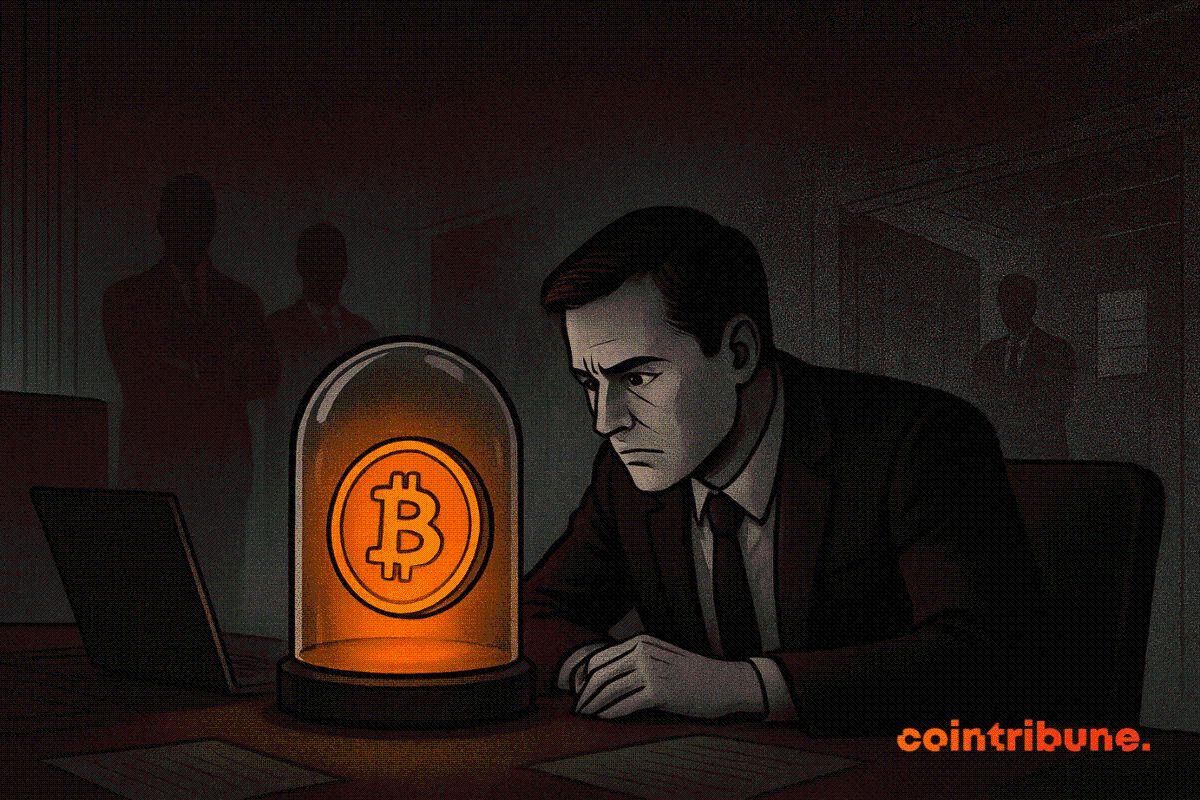The Political and Strategic Challenges to European Banking M&A: A Barometer for Future European Financial Integration
- European banks face a surge in M&A, driven by scale needs and regulatory support, but political interventions and shareholder resistance complicate deals. - Italy's "golden power" rules and Spain's merger restrictions highlight regulatory fragmentation, creating legal disputes and eroding deal synergies. - Shareholder resistance grows as smaller banks reject hostile bids, forcing bidders to negotiate discounts and increasing valuation risks. - Investors now prioritize regulatory alignment and political b
The European banking sector in 2025 is at a crossroads, with a record $27 billion in M&A deals announced since the start of the year—nearly double the 2024 figure—driven by the need for scale, strategic diversification, and regulatory support [1]. Yet, this surge in consolidation is increasingly shadowed by political interventions and shareholder resistance, which are reshaping the landscape of European financial integration. For investors, the question is no longer whether banks will consolidate, but how these dynamics will determine the long-term viability of European banking stocks in a fragmented regulatory environment.
Government interventions, such as Italy’s “golden power” rules, have emerged as a critical wildcard. The Italian government’s imposition of stringent conditions on UniCredit’s $22.2 billion takeover of Banco BPM—including mandatory divestitures of southern Italian loans and a five-year loan-to-deposit ratio freeze—has sparked a legal and political showdown with the European Commission [2]. The EU’s warning that such measures may breach the free movement of capital principle underscores a broader tension: national governments are increasingly prioritizing domestic economic interests over pan-European integration [3]. This trend is not isolated. In Spain, BBVA’s proposed €13 billion merger with Banco Sabadell faced a three-year operational separation mandate, eroding projected cost synergies and triggering a 20% drop in BBVA’s share price [4]. These cases highlight how regulatory fragmentation and political overreach can delay or derail deals, creating valuation uncertainty for investors.
Shareholder resistance further complicates the equation. As European banks accumulate excess capital—over $600 billion since 2022—target boards are becoming more assertive in resisting unsolicited bids. Mediobanca’s rejection of a 13.3 billion euro offer from Banca Monte dei Paschi di Siena, framed as a defense of strategic autonomy, exemplifies this trend [5]. Smaller banks, now more profitable (85% of EURO STOXX Banks Index members exceed 10% return on tangible equity), are less inclined to accept hostile takeovers [5]. This shift has forced bidders to negotiate directly with shareholders, often at a discount, and has increased the risk of “winner’s curse” scenarios where overpaying for targets leads to value destruction [6].
For investors, the implications are clear. European banking M&A is no longer a straightforward path to scale. Deals lacking regulatory clarity or political backing face delays, valuation discounts, or collapse. The UniCredit-Banco BPM merger, for instance, now hinges on resolving legal disputes with the EU, while BBVA’s Sabadell deal remains in regulatory limbo [2]. These uncertainties are reflected in stock performance: European bank shares have risen 18% year-to-date in 2025, but volatility remains high as investors weigh the risks of regulatory overreach and geopolitical tensions [7].
The path forward for European banking stocks depends on navigating these challenges. Banks that succeed will be those that align M&A strategies with national interests, demonstrate clear value creation, and build political capital. For example, domestic consolidation in Italy, the UK, and the Nordic region offers a clearer regulatory path than cross-border deals, which remain vulnerable to political interference [1]. Additionally, strategic areas like wealth management and asset-backed financing—where European banks are pursuing partnerships and acquisitions—may offer more predictable returns [8].
However, the broader structural risks persist. The implementation of Basel IV and divergent regulatory frameworks across jurisdictions will create uneven playing fields, while geopolitical tensions and trade fragmentation threaten to further complicate cross-border integration [9]. The European Central Bank’s advocacy for a more integrated banking sector contrasts with the reality of national governments acting as gatekeepers, a dynamic that could delay the creation of a truly unified European financial market.
In conclusion, European banking M&A in 2025 is a double-edged sword. While consolidation offers the potential for cost synergies and improved returns, the political and regulatory hurdles are formidable. Investors must approach this landscape with caution, prioritizing deals with strong regulatory alignment, clear value propositions, and political backing. The future of European financial integration—and the long-term viability of banking stocks—will hinge on whether these challenges can be reconciled with the strategic imperative for scale.
Source:
[1] European Banking M&A Surges In 2025
[2] EU challenges Italy's use of 'golden power' rules for ...
[3] Political meddling changes euro-bank M&A playbook
[4] The High Stakes of European Banking M&A: Navigating ...
[5] Hostile EU bank M&A raises risk of winner's curse
[6] European banking integration: harnessing the benefits ...
[7] European Banks at a Crossroads: Sustaining the Sweet Spot in a High-Yield, High-Risk Era
[8] 2025 banking and capital markets outlook
[9] The 2025 European Banking Puzzle: Risks, Rewards, and ...
Disclaimer: The content of this article solely reflects the author's opinion and does not represent the platform in any capacity. This article is not intended to serve as a reference for making investment decisions.
You may also like
Terra Luna Classic Shakes the Crypto Market with Surprising Developments
In Brief LUNC experienced a significant price decline following Do Kwon's sentencing. The court cited over $40 billion losses as a reason for Do Kwon's penalty. Analysts suggest short-term pressure on LUNC may persist, despite long-term community support.

NYDIG: Tokenized Assets Offer Modest Crypto Gains as Growth Depends on Access and Regulation

Cardano Investors Split As Market Fatigue Sets In
